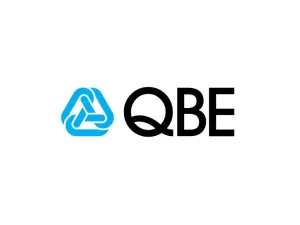Cyber Threats Grow as SMEs Reduce Security Investments
Hong Kong SMEs face rising cyber risks as businesses scale back security investments, according to the latest QBE Hong Kong SME Survey. The survey, conducted between November 2024 and January 2025, gathered insights from 600 business decision-makers.
Cyber incidents have increased from 30% in 2024 to 33% in 2025, despite growing awareness. While 51% of respondents say they are fully informed about cyber risks, up from 48% last year, fewer SMEs are actively investing in protection. The use of cybersecurity software fell from 62% to 60%, staff training from 45% to 43%, and cyber resilience consulting from 42% to 36%.

At the same time, more businesses are hiring cybersecurity specialists, with numbers rising from 43% to 49%. Cyber insurance purchases also grew from 39% to 43%, driven by concerns over legal costs, security breaches, and data protection. However, 62% of SMEs still lack cyber insurance, with cost concerns and low perceived risk among the main reasons.
The dangers of cyber threats were underscored when a Hong Kong finance worker was tricked into transferring $25 million to fraudsters using deepfake technology. The scammers impersonated the company’s CFO in a video call, highlighting the increasing sophistication of AI-driven cybercrime.
AI Adoption Rises, But Risks Emerge
Artificial intelligence (AI) is playing a growing role in SME operations. This year, 57% of businesses report using AI for productivity, up from 55% in 2024. However, concerns over AI-related risks are increasing, with 47% of SMEs now viewing AI as a threat to business operations, up from 31% last year.
The most cited AI-related concerns include privacy issues (69%) and security risks (52%). Despite this, most SMEs do not believe AI-driven job losses will occur before 2031. The most likely affected roles include customer service, human resources, and sales and marketing.
Rising Costs and Economic Uncertainty Weigh on SMEs
Financial pressures continue to grow for Hong Kong SMEs. Nearly 60% report struggling with higher costs and reduced profitability, up from 40% last year. Cash flow issues and access to funding remain major challenges for nearly half of businesses.
Economic optimism is also fading. Only 64% of SMEs expect better conditions in the coming year, compared to 70% in 2024. Investor and customer confidence is weakening, with 74% of respondents citing it as a concern, up from 63% last year.
Despite financial struggles, SMEs are adapting. Three-quarters have implemented cost-cutting measures, while 45% have streamlined operations, and 42% have diversified their offerings.
Shift Back to Offline Insurance Purchases
More SMEs are opting for offline insurance channels. The survey shows that 68% now prefer in-person transactions, up from 57% in 2024.
Online aggregator use has declined from 22% to 16%, and direct online platform preference has dropped from 21% to 16%. Meanwhile, reliance on brokers has risen from 22% to 30%, and bank-based insurance purchases have increased from 14% to 18%.
Most SMEs (85%) prefer bundled insurance packages covering multiple risks, while only 15% seek standalone policies.
Other News: QBE Insurance Launches Global Cyber Coverage with QCyberProtect(Opens in a new browser tab)